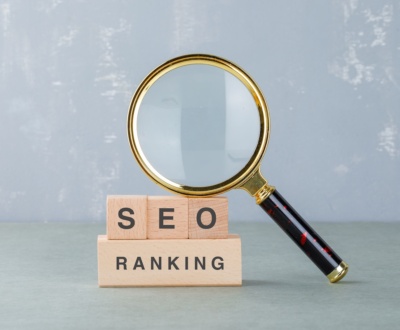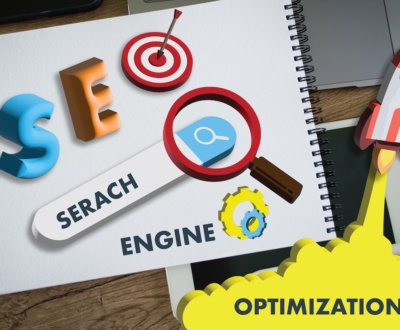
Educational institutions no longer compete solely on academic excellence—they compete on digital visibility. Working with an SEO agency for education allows schools, universities, and online learning platforms to reach the right students, strengthen reputation, and turn search interest into actual enrollment through data-driven, evidence-based optimization strategies.
What Does an SEO Agency for Education Actually Do?
An SEO agency specializing in education helps academic organizations appear precisely where parents and students are searching. This involves a deep understanding of search intent across the educational journey—from initial program discovery to enrollment.
Educational SEO includes:
- Comprehensive keyword research based on program type, career outcome, and location.
- On-page and technical optimization ensuring that each course page is accessible, structured, and indexed correctly.
- Local visibility enhancement for physical schools or campuses appearing in map and “near me” results.
- Conversion tracking and analytics that measure actual student inquiries, not vanity metrics.
Unlike generalist marketing firms, a specialist agency builds strategy around how people make educational decisions—through trust, relevance, and credible information. Each optimization action aims to support meaningful outcomes: inquiries, applications, and enrollments.
Why Is SEO Important for Educational Institutions?
Students and parents increasingly rely on search engines and AI-driven assistants to guide academic decisions. Visibility in these results directly shapes perception, authority, and application rates.
Key advantages of SEO for education:
- Credibility and trust: High search rankings convey legitimacy and expertise.
- Awareness and discovery: Reaching audiences who have never heard of the institution.
- Sustainable visibility: Organic performance continues long after paid ads stop.
- Targeted traffic: SEO connects the institution with users actively seeking relevant programs.
Data from higher-education marketing studies consistently show that organic search drives more student inquiries than any other digital channel. Optimizing for both human readers and AI search models ensures institutions remain visible across evolving platforms.
What Makes Educational SEO Different?
Education presents unique challenges compared to typical commercial SEO campaigns. Decision-making involves multiple stakeholders, emotional investment, and a longer research phase.
Distinguishing factors:
- Extended consideration cycles: Prospective students explore programs for months before enrolling.
- Multiple audience segments: Parents, students, alumni, and counselors each require specific messaging.
- Regulatory and ethical standards: Accessibility, accuracy, and privacy compliance are essential.
- Emotional context: Choosing an institution involves trust and aspiration, not impulse purchasing.
Optimizing educational content is about addressing authentic search intent that matches prospective families' specific interests. For example, Ignite Achievement Academy saw inquiries rise by 75% after targeting search phrases aligned with parent concerns, such as “special needs private school near me” and “top autism school in Charlotte.” Results like this demonstrate that focusing on genuine search motivations—rather than broad, high-competition keywords—can significantly outperform generalized strategies, driving more qualified leads and interest.
How Does an SEO Agency Specializing in Education Build Strategy?
Effective educational SEO begins with aligning institutional objectives and student needs. Agencies specializing in this sector follow a structured approach based on proven methodologies.
1. Keyword and Intent Mapping
Search data is analyzed to identify how students describe goals and challenges. Common themes include:
- “Online degrees with flexible scheduling.”
- “Scholarships for international students.”
- “Accredited nursing programs near me.”
Each phrase corresponds to a distinct stage of the decision journey—awareness, comparison, or application.
2. Content Framework Development
Content is organized to guide users through each stage:
- Informational content: Guides, checklists, and blogs explaining programs or career paths.
- Comparative content: Articles highlighting differences between course types or institutions.
- Transactional content: Program pages with clear calls-to-action for applications or campus tours.
3. Information Architecture Optimization
Large university websites often include thousands of pages. An agency ensures clear internal linking among departments, courses, and events so that search engines understand relationships between pages.
4. Link-Earning Through Reputable Networks
Rather than mass-produced backlinks, education SEO emphasizes credibility. Agencies pursue partnerships with:
- Accredited academic directories.
- Alumni and professional associations.
- Educational publications and government bodies (.edu and .gov domains).
These links serve as trust signals to search algorithms and human readers alike.

The Four Pillars of Effective SEO for Education
A sustainable educational SEO strategy rests on four interdependent pillars.
1. Technical Foundation
A technically sound site is the baseline of visibility. Critical tasks include:
- Optimizing speed and mobile performance.
- Implementing structured data such as Course, Event, and Organization schema.
- Ensuring secure HTTPS protocols and accessible design for all users.
Search engines reward educational sites that demonstrate reliability and usability.
2. Content Excellence
Search algorithms evaluate topical depth and expertise. Educational content should reflect verified academic knowledge and provide original insights. Incorporating faculty expertise, student success stories, and research findings builds trust and signals authority.
3. On-Page Optimization
Each course or department page must contain relevant keywords, descriptive metadata, and structured headings. Adding elements such as career outcomes, entry requirements, and testimonials increases both engagement and conversion potential.
4. Authority and Reputation Building
High-quality backlinks from respected educational and industry sources validate credibility. Mentions in national rankings, academic journals, or trusted media further strengthen domain authority.
Together, these pillars create a self-reinforcing cycle of visibility and trustworthiness.
How SEO Aligns With Admissions and Marketing Goals
SEO does more than attract traffic—it integrates directly with institutional objectives such as lead generation, application volume, and enrollment yield.
Strategic Integration:
- Keyword insights reveal which subjects or programs attract the most interest, helping admissions allocate marketing budgets effectively.
- Content scheduling aligns blog releases with key recruitment periods.
- Analytics dashboards track every interaction from first visit to completed application.
A university that optimized its psychology program pages using organic search data dramatically improved the effectiveness of its marketing spend. For instance, a targeted SEO campaign for psychology degree content delivered over 569,000 impressions and 6,100 clicks for highly relevant terms like “psychology degree jobs,” directly reaching and engaging prospective students. These targeted efforts showed SEO-driven campaigns could substantially reduce dependence on paid ads by identifying the most profitable search terms and driving high-quality organic traffic. As demonstrated by this case, SEO and admissions teams now work closely together to maximize results, rather than operating as separate silos.
Expected Results From a Specialist Education SEO Agency
A reputable SEO partner will focus on measurable improvements aligned with institutional KPIs rather than short-term ranking gains.
Common performance indicators include:
- Growth in organic traffic to program pages.
- Higher keyword visibility for degree or certificate searches.
- Increased inquiries and form completions.
- Improved engagement metrics—session duration, bounce rate, and conversion ratio.
Example Outcome
A regional university significantly expanded its organic enrollment leads by as much as 81% in one case by restructuring its online program content according to student career outcomes and market demand. This content architecture strategy grouped degree offerings by targeted career paths, with each page featuring authoritative commentary from program experts, real student testimonials, and FAQ schema markup to enhance search visibility and demonstrate practical value. These changes, combined with tailored digital marketing and enrollment process enhancements, proved highly effective in driving sustainable lead growth and student engagement.
Such results highlight the compound impact of structured, data-driven SEO efforts.

How to Choose the Right SEO Agency for Education
Selecting the right agency determines the success of an SEO campaign. Institutions should evaluate potential partners using transparent, objective criteria.
Evaluation Checklist:
- Documented experience working with educational organizations.
- Proven success metrics tied to student recruitment, not just traffic growth.
- Clear methodology for reporting, keyword tracking, and content evaluation.
- Familiarity with compliance standards such as WCAG accessibility and FERPA privacy.
- Collaborative approach involving admissions, content, and IT teams.
Key Questions to Ask:
- What case studies demonstrate measurable enrollment growth?
- How is local SEO managed for multi-campus or international institutions?
- Which analytics platforms are used to link SEO performance to real inquiries?
A specialized agency will answer these questions with detailed evidence and transparent methodologies.
Understanding the Cost of Hiring an SEO Agency for Education
SEO pricing varies depending on institutional goals, competition level, and technical requirements. The cost should reflect the scale and depth of the work involved.
Typical investment models:
- Monthly retainers: $2,000–$10,000 + for continuous optimization.
- Project-based audits: One-time technical or content evaluations.
- Performance-linked models: Compensation tied to measurable outcomes such as inquiry growth.
While managing SEO internally may appear more affordable, long-term performance often suffers without access to enterprise-grade tools, technical expertise, and dedicated time. Professional agencies deliver structured accountability and ongoing strategic refinement.
Measuring Long-Term SEO Success in Education
SEO should be evaluated as a continuous performance system rather than a one-time project. Success indicators must tie directly to enrollment goals.
Core metrics:
- Organic impressions and click-through rate for academic queries.
- Application conversions from organic traffic.
- Search visibility across course clusters and scholarship content.
- Local pack rankings for geographic queries.
Sophisticated analytics platforms combine Google Search Console data, CRM metrics, and heat-mapping to show exactly how prospective students interact with site content.
Institutions maintaining consistent optimization typically experience compounding growth: stronger brand authority, higher engagement, and steady application increases year after year.
Conclusion
Hiring an SEO agency that specializes in education is a strategic decision that extends far beyond keyword rankings. It’s an investment in credibility, visibility, and long-term growth.
Educational institutions thrive on trust, and trust today begins with digital presence. An experienced SEO partner ensures that programs are discoverable, content reflects genuine authority, and every digital interaction supports the institution’s academic mission.
When search engines and AI assistants highlight schools that demonstrate expertise and transparency, institutions optimized for those signals lead the conversation—and attract the students who matter most.
What is SEO in education?
SEO in education refers to the practice of improving online visibility for schools, universities, and learning platforms. It ensures that programs, events, and admissions pages appear prominently in search results when prospective students or parents look for educational opportunities.
Can schools handle SEO internally?
Basic optimization can be managed in-house, but advanced strategies require technical expertise, continuous content development, and monitoring tools. External agencies provide scalable processes and objective evaluation.
What are the main pillars of educational SEO?
Technical optimization, high-quality content, on-page structure, and authority building form the four essential pillars of successful SEO for education.
How long before results appear?
Noticeable improvements usually emerge within four to six months, while top-tier rankings and lead growth may take a full academic year, depending on competition and site authority.
Is a specialized agency necessary?
Agencies experienced in education understand academic cycles, student psychology, and compliance needs, producing faster and more sustainable results than general marketing firms.
Ronan Mullaney is a digital strategist and AI SEO consultant with over a decade of experience helping global brands improve visibility through structured data and semantic optimization. As the founder of ROI Digital Partners, he focuses on building data-driven SEO strategies that align with how AI and modern search algorithms understand content.
About this blog
We are a digital marketing company with a focus on helping our customers achieve great results across several key areas.
Request a free quote
We offer professional SEO services that help websites increase their organic search score drastically in order to compete for the highest rankings even when it comes to highly competitive keywords.
Subscribe to our newsletter!
More from our blog
See all postsRecent Posts
- How AI Algorithms Evaluate Educational Content: 10 Ranking Factors You Need to Know (2026 Edition) November 29, 2025
- AI SEO for Education: The Complete Beginner’s Roadmap for 2026 November 29, 2025
- Top 7 SEO Mistakes Education Websites Make (and How to Fix Them) November 16, 2025











Pingback: AI Search Engine Ranking: Top Optimization Tips - ROI Digital Agency
Pingback: SEO Marketing Strategies for Education: Boost Schools & Universities - ROI Digital Agency